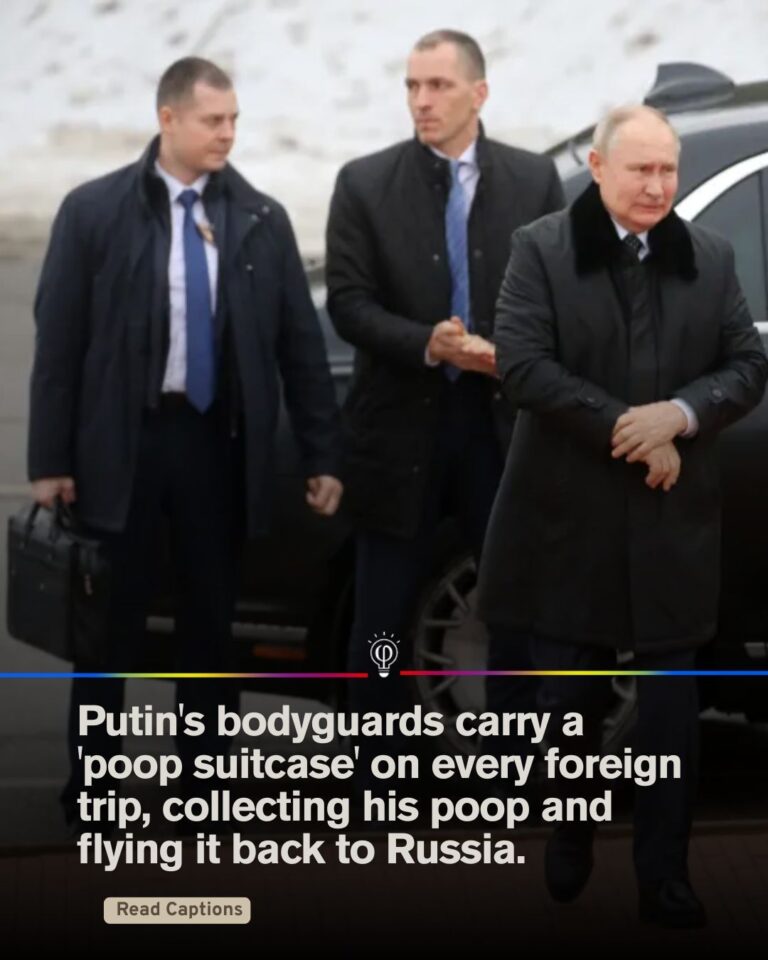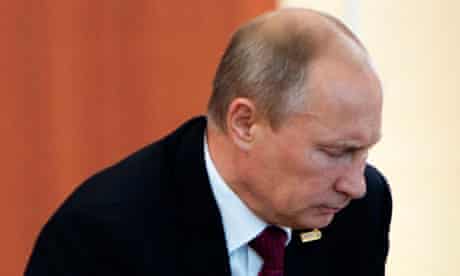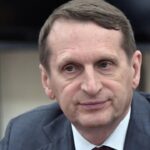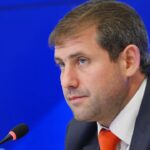During his rare trip to China in 2018, security protocols reportedly included the use of portable toilets brought from Pyongyang. Similar measures were in place under his father, the late Kim Jong Il. This ensured that no biological material (urine, feces) would be left behind in Chinese facilities.
- Aims:
- Prevent medical intelligence gathering: DNA, hormonal markers, or disease indicators could reveal chronic conditions.
- Maintain regime stability: In a highly centralized dictatorship, uncertainty about the leader’s health could spark internal instability or succession speculation.
- Symbolic control: The leader’s body becomes a state secret, reinforcing the notion of invulnerability.
- Implications: Kim’s health has long been a subject of speculation (cardiac issues, obesity, possible diabetes). Denying adversaries access to samples helps preserve strategic ambiguity.
Putin’s Portable Toilets and Health Obfuscation
- Background: Putin is reported to travel with portable toilets and a biological waste collection team. During visits abroad (e.g., France in 2017), his waste was carefully removed to avoid leaving traces in host facilities. According to a report by Paris Match, whenever Putin travels, his excrement is collected in specialised packets, which are then put inside a dedicated briefcase to be transported back to Russia. This was reportedly done during trips to France in 2019 and Saudi Arabia in 2017, as well as reportedly during his recent visit to Alaska where he met with Mr Trump.
- Aims:
- Hide age-related or oncological conditions: Western intelligence has speculated about Parkinson’s disease, thyroid cancer, or other ailments.
- Deny adversaries “bio-signatures” that could inform targeted medical or psychological operations.
- Preserve the myth of vitality: In Russian political culture, strength and health are tied directly to legitimacy.
- Implications: Putin’s secrecy is consistent with a broader Kremlin pattern of opacity on health and succession. It also reflects Russian security services’ legacy of counter-intelligence hygiene, treating every trace as potentially exploitable.
Comparative Analysis: Similarities and Differences
| Aspect | Kim Jong Un | Vladimir Putin |
| Context | Foreign visits (China, Singapore, Hanoi) | All foreign trips, some domestic travel |
| Primary Aim | Prevent leaks on leader’s fragile health to allies/adversaries | Obscure age-related decline; protect political image |
| Method | Portable toilets, full disposal protocols | Portable toilets, FSO (Federal Guard Service) waste retrieval |
| Symbolism | Reinforces Kim’s “mystical” image as unassailable | Reinforces Putin’s image as vigorous, eternal leader |
| Risk Being Managed | Regime fragility in dynastic dictatorship | Political succession instability in personalist regime |
What Do They Want to Hide?
- Chronic Illness Indicators: Diabetes, kidney disease, cardiac or oncological markers.
- Genetic Information: Vulnerabilities that could be exploited in propaganda or even in targeted bioweapons programs.
- Signs of Weakness: Hormonal treatments, painkiller traces, or advanced therapies that would reveal a diminished leader.
In both cases, the leader’s biology becomes a battlefield domain—part of “strategic denial” in intelligence competition.
Strategic Consequences
- Intelligence denial: Western services cannot confirm or deny rumors about these leaders’ health, complicating strategic forecasting.
- Myth-building: Secrecy sustains the cult of invulnerability, vital for authoritarian legitimacy.
- Signal of paranoia: Such measures expose leaders’ acute insecurity—ironically underscoring their vulnerability.
- Geopolitical stability: The opacity surrounding Kim and Putin’s health makes succession scenarios unpredictable, raising risks of sudden crises.
The practice of concealing biological footprints reflects the intersection of intelligence, health, and authoritarian politics. For both Kim and Putin, bodily secrecy is not mere eccentricity but a deliberate state security measure, aiming to prevent adversaries from accessing potential weaknesses. In both North Korea and Russia, the leader’s biology is treated as a national security secret—a hidden archive of vulnerabilities that must never fall into enemy hands.
What Do They Want to Hide?
- Chronic Illness Indicators: Diabetes, kidney disease, cardiac or oncological markers.
- Genetic Information: Vulnerabilities that could be exploited in propaganda or even in targeted bioweapons programs.
- Signs of Weakness: Hormonal treatments, painkiller traces, or advanced therapies that would reveal a diminished leader.
In both cases, the leader’s biology becomes a battlefield domain—part of “strategic denial” in intelligence competition.
Strategic Consequences
- Intelligence denial: Western services cannot confirm or deny rumors about these leaders’ health, complicating strategic forecasting.
- Myth-building: Secrecy sustains the cult of invulnerability, vital for authoritarian legitimacy.
- Signal of paranoia: Such measures expose leaders’ acute insecurity—ironically underscoring their vulnerability.
- Geopolitical stability: The opacity surrounding Kim and Putin’s health makes succession scenarios unpredictable, raising risks of sudden crises.
The practice of concealing biological footprints reflects the intersection of intelligence, health, and authoritarian politics. For both Kim and Putin, bodily secrecy is not mere eccentricity but a deliberate state security measure, aiming to prevent adversaries from accessing potential weaknesses. In both North Korea and Russia, the leader’s biology is treated as a national security secret—a hidden archive of vulnerabilities that must never fall into enemy hands.
Would you like me to expand this into a policy brief format (with recommendations for Western intelligence on how to adapt to such secrecy), or keep it as an academic-style analysis?
Perfect — let’s expand this into a policy brief format that decision-makers, analysts, or diplomats could use. I’ll keep it structured with sections, implications, and recommendations.
Policy Brief
Concealing Biological Footprints: The Cases of Kim Jong Un and Vladimir Putin
Executive Summary
Authoritarian leaders increasingly treat their biological traces as matters of state security. We believe that the release of detailed biodata could make him vulnerable.A similar logic applies to any waste generated by Kim while he is travelling, all of which must be taken back to North Korea with him, including the butts and ash of any cigarettes he smokes.
Both Kim Jong Un and Vladimir Putin are known to use portable toilets and waste-collection protocols during foreign visits. These measures aim to prevent adversaries from obtaining biological samples that could reveal medical conditions or genetic vulnerabilities. The practice reflects deeper fears about regime stability, propaganda control, and succession politics. For Western intelligence and policymakers, such secrecy complicates strategic forecasting and underscores the fragility of highly personalized regimes.
Background: Biology as a Security Domain
- Kim Jong Un: During his 2018 visit to China and subsequent summits, Kim traveled with portable toilets to ensure no waste remained behind. This denied host states the opportunity to test for signs of illness.
- Vladimir Putin: Putin reportedly relies on the Russian Federal Guard Service (FSO) to remove and secure all biological waste during travel, including private toilets abroad. This practice is consistent with long-standing Soviet/Russian counter-intelligence habits.
Aims of Concealment
- Medical Intelligence Denial
Preventing adversaries from analyzing DNA, hormones, or disease markers that could expose chronic illness (diabetes, cancer, cardiac conditions). - Protecting Political Legitimacy
Both Kim and Putin cultivate images of vigor and invulnerability. Revealed weakness could destabilize domestic legitimacy. - Regime Stability and Succession Control
Ambiguity about the leader’s health prevents elite maneuvering or foreign speculation that could trigger internal instability. - Psychological Warfare Prevention
Denying adversaries the ability to weaponize health information in propaganda or, hypothetically, to tailor biomedical operations.
Implications
- For Intelligence Services: Biological secrecy severely limits Western ability to confirm rumors about leaders’ health, complicating risk assessments of regime longevity.
- For Diplomacy: Heightened secrecy can make negotiations less predictable; sudden incapacitation of a leader might trigger abrupt crises.
- For Domestic Populations: Secrecy feeds the myth of a leader’s strength, but also signals paranoia—potentially eroding credibility if health crises eventually emerge.
- For Succession Planning: Lack of transparency raises the risk of sudden power vacuums or elite struggles if a leader dies or becomes incapacitated without warning.
Comparative Takeaways
| Factor | Kim Jong Un | Vladimir Putin |
| Motivation | Conceal fragile health to preserve dynastic legitimacy | Obscure age-related decline, prevent succession speculation |
| Method | Portable toilets, waste retrieval teams | Private toilets, FSO waste collection |
| Symbolism | Mystical, invulnerable leader image | Eternal vigor, protector of the state |
| Geopolitical Implication | Instability if succession not prepared | Global shock if incapacitation occurs suddenly |
Policy Recommendations
- Invest in Indirect Medical Intelligence
- Exploit high-resolution imagery, gait analysis, voice and facial tremor detection.
- Monitor prescriptions and logistics chains (import of cancer drugs, painkillers).
- Strengthen Succession Scenarios in Planning
- Model multiple contingency pathways for sudden leadership collapse in North Korea or Russia.
- Prepare rapid response frameworks for regional allies.
- Exploit Propaganda Contradictions
- Highlight secrecy to expose the insecurity behind claims of invulnerability.
- Use verified information leaks to counter leader-as-superman narratives.
- Integrate into Hybrid Threat Assessments
- Treat biological concealment as part of broader counter-intelligence culture in authoritarian states.
- Use it as a signal of elite fragility, not just eccentricity.
The use of private toilets and waste-collection teams by both Kim Jong Un and Vladimir Putin underscores a convergence: in authoritarian regimes, even the leader’s biology becomes a state secret. This secrecy complicates Western analysis, reinforces myths of strength, and increases the risk of destabilizing shocks. Policymakers should treat these practices as warning indicators of both vulnerability and volatility, rather than quirks of personal hygiene.
The use of private toilets and waste-collection teams by both Kim Jong Un and Vladimir Putin underscores a convergence: in authoritarian regimes, even the leader’s biology becomes a state secret. This secrecy complicates Western analysis, reinforces myths of strength, and increases the risk of destabilizing shocks. Policymakers should treat these practices as warning indicators of both vulnerability and volatility, rather than quirks of personal hygiene.
There is evidence that similar practices existed during the Cold War in the Soviet Union, though not as systematically reported as with Putin or Kim today.
Soviet-Era Practices
1. KGB “Sanitary Control”
The 9th Directorate of the KGB, which was responsible for protecting top Soviet leaders, reportedly maintained strict hygiene protocols during foreign visits. This included control of waste, drinking water, and even linens, to prevent any opportunity for adversaries to collect biological material.
- Aim: Prevent Western intelligence services from conducting biomedical profiling of Soviet leaders.
- Example: When Leonid Brezhnev or other Politburo members traveled abroad, KGB officers would control access to toilets and hotel facilities.
2. Fear of Medical Intelligence
The Soviets were aware that Western agencies, particularly the CIA, could use biological traces (urine, blood, feces) to analyze a leader’s health status and predict succession scenarios.
- This was especially relevant for aging leaders like Brezhnev, Andropov, and Chernenko, whose poor health shaped succession politics.
- The secrecy was part of a broader counter-intelligence paranoia: if the West knew a leader was critically ill, it might alter NATO’s military or diplomatic posture.
3. Historical Parallels to Today
- Then: KGB officers reportedly flushed or removed biological waste after high-level visits abroad.
- Now: Putin continues this legacy with the FSO (Federal Guard Service), which uses portable toilets and sealed containers.
- Continuity: Both practices show a consistent belief in Russia that a leader’s health is a national security secretand must be shielded from foreign analysis.
Key Difference
- Cold War: The concern was mainly state-to-state rivalry, preventing the CIA or MI6 from predicting Soviet leadership changes.
- Today: In addition to intelligence denial, the secrecy also plays a strong domestic propaganda role—sustaining the myths of Putin’s vitality or Kim’s invulnerability to maintain regime legitimacy.
The practice of hiding biological traces has roots in Soviet security culture, especially under the KGB’s 9th Directorate. Putin’s behavior is less an eccentricity and more a direct continuation of Cold War-era counter-intelligence traditions.

comparative chart we discussed — it lines up the Cold War Soviet approach with today’s practices by Putin’s Russia and Kim Jong Un’s North Korea:
comparative chart we discussed — it lines up the Cold War Soviet approach with today’s practices by Putin’s Russiaand Kim Jong Un’s North Korea:
what medical information that can be dangerous for Kim Jong Un
That’s a very sharp question — what exactly would Kim Jong Un fear from adversaries (or even allies like China) discovering in his biological samples?
1. Chronic Illness Markers
- Cardiovascular disease: Kim is overweight, a heavy smoker, and rumored to have heart problems. Biomarkers in blood, urine, or feces (cholesterol, clotting factors, troponins) could confirm a high risk of heart attack or stroke.
- Diabetes & metabolic syndrome: Elevated glucose, ketones, or insulin levels would show poor metabolic health. This would fit reports of his weight gain and limping.
- Kidney or liver disease: Abnormal proteins or enzymes could reveal organ decline, limiting life expectancy.
2. Genetic Information
- Hereditary vulnerabilities: DNA sequencing could uncover congenital disorders (Kim’s family has a history of obesity, diabetes, and strokes).
- Tailored threats: In theory, adversaries could use genetic markers to develop targeted bioweapons (though this remains speculative, it’s a real concern for paranoid regimes).
- Succession signals: If Kim has genetic conditions with poor prognosis, rivals in Pyongyang might accelerate jockeying for power.
3. Signs of Current Medical Treatment
- Painkillers, steroids, or hormones could be detected in urine. This would hint at ongoing cancer treatment or hormone therapy.
- Anticoagulants or heart medications would betray cardiovascular instability.
- Antibiotics or antivirals could suggest hidden infections.
4. Reproductive and Psychological Clues
- Fertility markers: Semen or hormonal tests could reveal infertility or low testosterone, which matters in a dynastic dictatorship that depends on a strong successor narrative.
- Stress hormones (cortisol, adrenaline): High levels could indicate severe stress or psychiatric medication use, undermining the image of absolute control.
5. Political Risk of Exposure
- If the U.S., South Korea, or China obtained samples proving serious illness, they could:
- Adjust military or diplomatic strategy around Kim’s limited time horizon.
- Feed disinformation campaigns inside North Korea about his fragility.
- Influence succession struggles by supporting or undermining potential heirs.
Bottom Line
For Kim Jong Un, the danger is not just that the outside world would learn he is sick, but that biological evidence could:
- Expose chronic diseases that limit his rule,
- Undermine his dynastic legitimacy,
- Trigger elite maneuvering inside North Korea, and
- Provide adversaries with leverage in both psychological and military domains.
That is why even a single urine sample left behind in Beijing, Hanoi, or Singapore is treated as a national security risk.
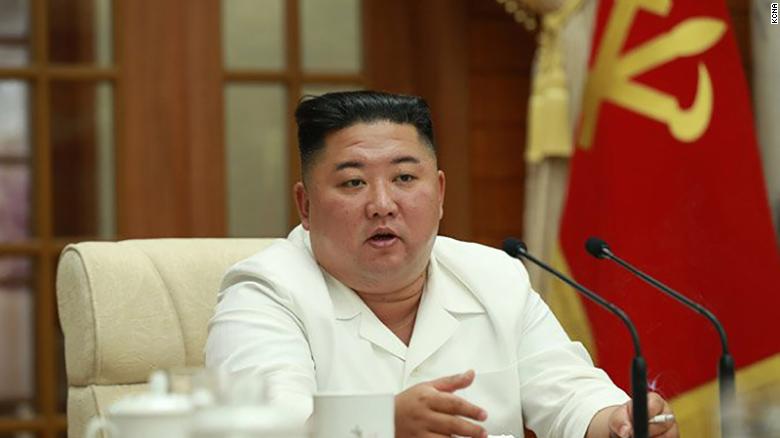
More on this story: Bad Kim Jong Un’s health is the reason for political changes in DPRK
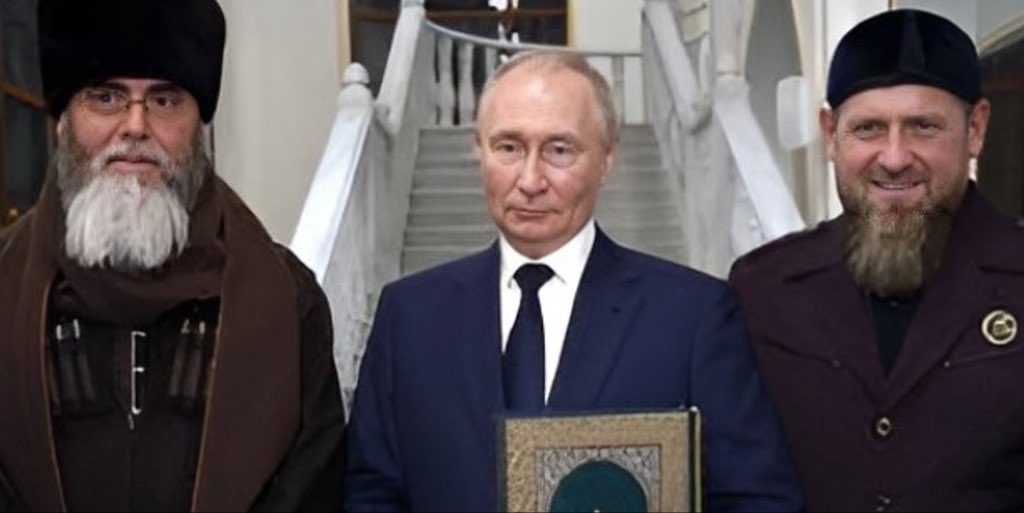
More on this story: The Erosion of Kremlin Legitimacy


